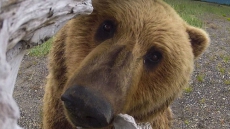You must have heard about the famous “six degrees of separation” theory that everyone on the planet is connected to everyone else by six other people. Facebook has just upended this theory, saying that world is more closely connected than you might think.
After studying 1.59 billion people active on the social networking website, the team determined that the number is actually 3.57 -- meaning thereby that there is actually “three-and-a-half degrees of separation” where each person in the world is connected to every other person by an average of three-and-a-half other people.
Facebook CEO Mark Zuckerberg is 3.17 degrees of separation from all Facebook users.
According to researchers, our collective “degrees of separation” have shrunk over the past five years.
In 2011, researchers at Cornell University, the Università degli Studi di Milano and Facebook computed the average across the 721 million people using the website.

“They and found that it was 3.74. Now, with twice as many people using the site, we've grown more interconnected, thus shortening the distance between any two people in the world,” Facebook said in a post.
“Calculating this number across billions of people and hundreds of billions of friendship connections is challenging; we use statistical techniques described below to precisely estimate distance based on de-identified, aggregate data,” the team wrote.
Imagine a person with 100 friends. If each of his friends also has 100 friends, then the number of friends-of-friends will be 10,000.
If each of those friends-of-friends also has 100 friends then the number of friends-of-friends-of-friends will be 1,000,000.
“Some of those friends may overlap, so we need to filter down to the unique connections. Rather than calculate it exactly, we relied on statistical algorithms to estimate distances with great accuracy, basically finding the approximate number of people within 1, 2, 3 (and so on) hops away from a source,” the researchers noted.

“The average distance we observe is 4.57, corresponding to 3.57 intermediaries or "degrees of separation." Within the US, people are connected to each other by an average of 3.46 degrees,” the post added.
The “six degrees of separation” theory was coined by the Hungarian playwright Frigyes Karinthy in 1929.





